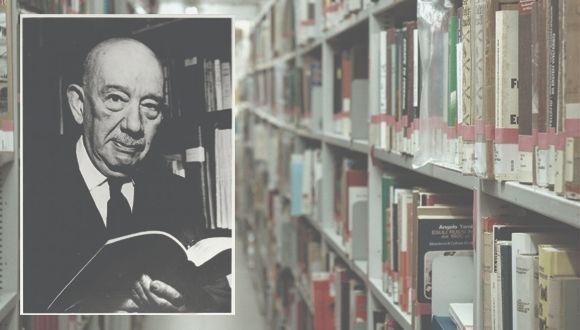Dr. Alfred Wiener
Alfred Wiener was a Jewish-German researcher and journalist, who held various positions at the Central Association of German Citizens of Jewish Faith (Centralverein deutscher Staatsbürger jüdischen Glaubens – CV). He was also founder of the Wiener Library – the first institution to document information about Nazism and the Holocaust.
Wiener was born in Potsdam on 16 March 1885. At the age of 18 he began studying Theology in Berlin, at the Higher Institute for Jewish Studies (Hochschule für die Wissenschaft des Judentums). However, he did not complete his degree there. At the same time, he also studied Oriental Studies, Philosophy, and History at the University of Berlin. In 1907 he first travelled to the Middle East. The trip was planned for health reasons, but he used his stay there to explore and research the area.
After he completed his studies and following the outbreak of World War One, Wiener was drafted in 1915 into the German Army. His service during the war won him both the Iron Cross, Second Class, and the Iron Crescent (given to those stationed in the Near East). After the war he began working for the CV, and quickly climbed the ranks, serving as deputy chairman and as editor of the CV Zeitung. Wiener held various positions at the CV until he left Germany in 1933. During his years at the CV he wrote many articles in its various publications.
In 1921 Wiener married Margarethe Sulman. The couple had four children – a son and three daughters. Their son, the eldest of the children, died at the age of 6.
In 1926 Wiener traveled to Palestine on behalf of the CV. The journey produced a book, A Critical Journey through Palestine (Kritische Reise durch Palastina), in which he wrote about the area, the Zionist settlements, and the Palestinians. Wiener himself was not a Zionist, and saw the Zionists' ambitions for autonomy as a grave mistake.
In 1933, as the Nazis rose to power in Germany, Wiener immigrated to Amsterdam, together with his family. In Amsterdam he founded the Jewish Central Information Office (JCIO), whose main purpose was to gather information about anti-Semitic activities, both in Germany and in the rest of Europe. In 1939, following the annexation of Czechoslovakia and Austria, and due to his fear that the Netherlands would not remain safe from the Germans for long, Wiener left Amsterdam for London. His wife and daughters did not manage to join him in time, and were captured by the Nazis after the invasion of the Netherlands. Although Wiener's family survived the war, his wife died shortly after she and her daughters were released from Bergen-Belsen concentration camp.
During the war Wiener continued his activities in London gathering material about Germany's conduct for the information center, which became known as the Wiener Library. He was united with his daughters only in 1947, after they had spent some two years with close friends of his in the United States. While he continued his work at the library, he also started trading in antique books, a business that provided him with a more stable income. In 1953 Wiener married Lotte Philips.
In 1955, on his 70th birthday, Wiener was granted West Germany’s highest decoration – the Great Cross of the Order of Merit (Grosses Verdienstkreuz), for the foundation of the library, his opposition to the Nazis, and especially for his willingness to establish new ties with the younger generation in Germany. Wiener died at the age of 78, on 4 February 1964.
Alfred Wiener's fascinating life story may be found in Ben Barkow's book Alfred Wiener and the Making of the Holocaust Library (1997).





